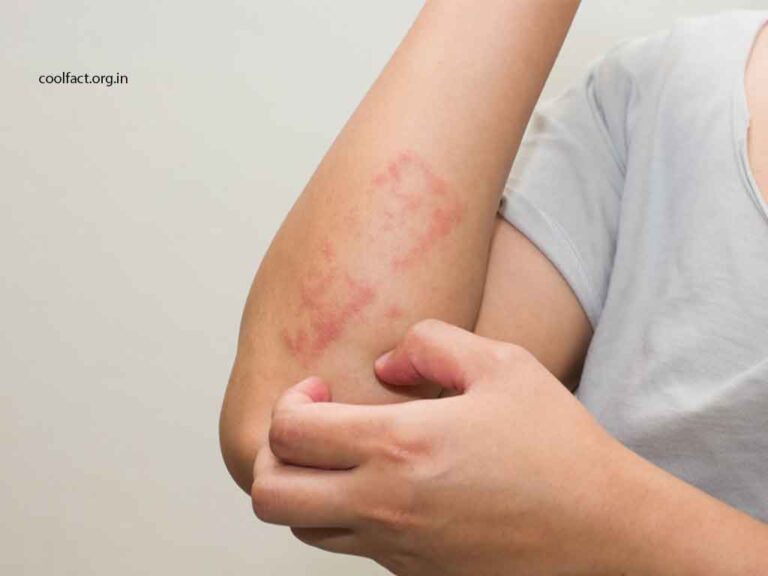Types of Skin Allergies: Skin allergies are a common problem affecting millions of people worldwide. These allergies can cause discomfort, itching, and even serious health complications. In this article, we will explore the various types of skin allergies, their causes, symptoms, and available treatments. Whether you’re experiencing skin allergy symptoms or simply want to expand your knowledge, this comprehensive guide will provide valuable insights.
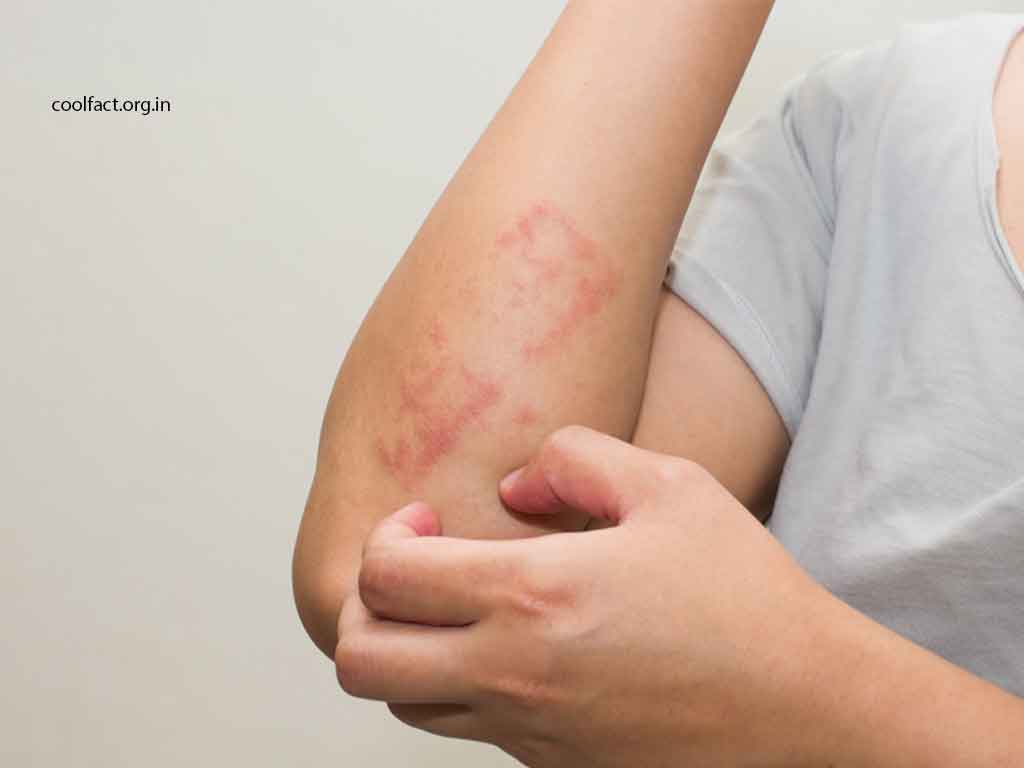
the Different Types of Skin Allergies:
What are Skin Allergies?
This is the 1st Type of Skin Allergy refers to allergic reactions that occur when the immune system reacts to certain substances, known as allergens, upon contact or ingestion. These allergens can include pollen, dust mites, pet dander, certain foods, or even specific chemicals. When exposed to these triggers, individuals with sensitive skin may experience a range of symptoms.
:max_bytes(150000):strip_icc():format(webp)/VWH_DermNet_Allergic-Contact-Dermatitis-Plaster_01-04427e0f167644aaa9a8d8a4efd2e8e5.jpg)
Contact Dermatitis
Contact dermatitis is a common type of skin allergy that occurs when the skin comes into direct contact with an irritant or allergen. This can include certain metals like nickel, fragrances, cosmetics, latex, or even certain plants like poison ivy. Symptoms of contact dermatitis include redness, itching, rash, and in severe cases, blisters or swelling. Let’s jump to 3rd Types of Skin Allergies
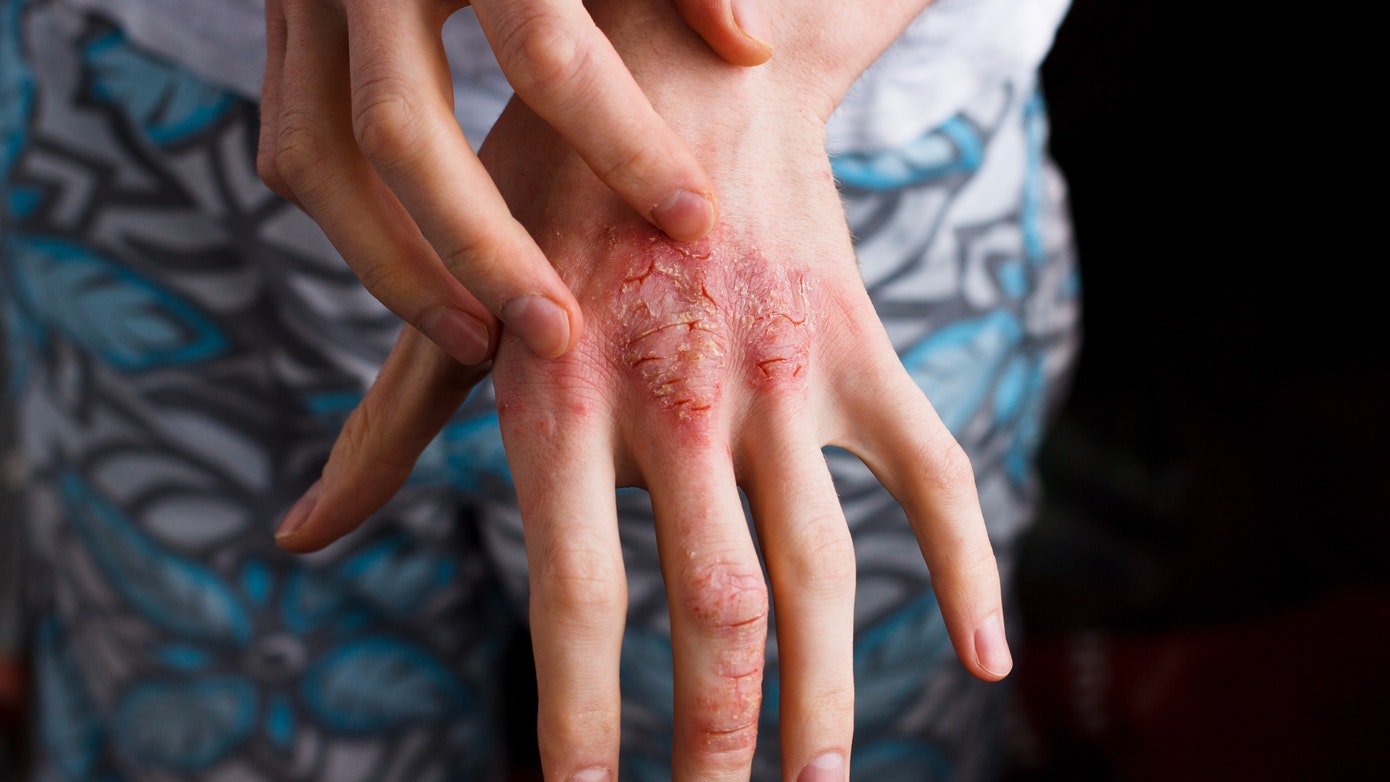
Atopic Dermatitis
Atopic dermatitis, also known as eczema, is a chronic condition characterized by dry, itchy, and inflamed skin. It often develops in early childhood and may persist into adulthood. The exact cause of atopic dermatitis is not fully understood, but it is believed to involve a combination of genetic and environmental factors. Stress, allergens, and certain irritants can trigger flare-ups. Let’s jump to 4th Types of Skin Allergies
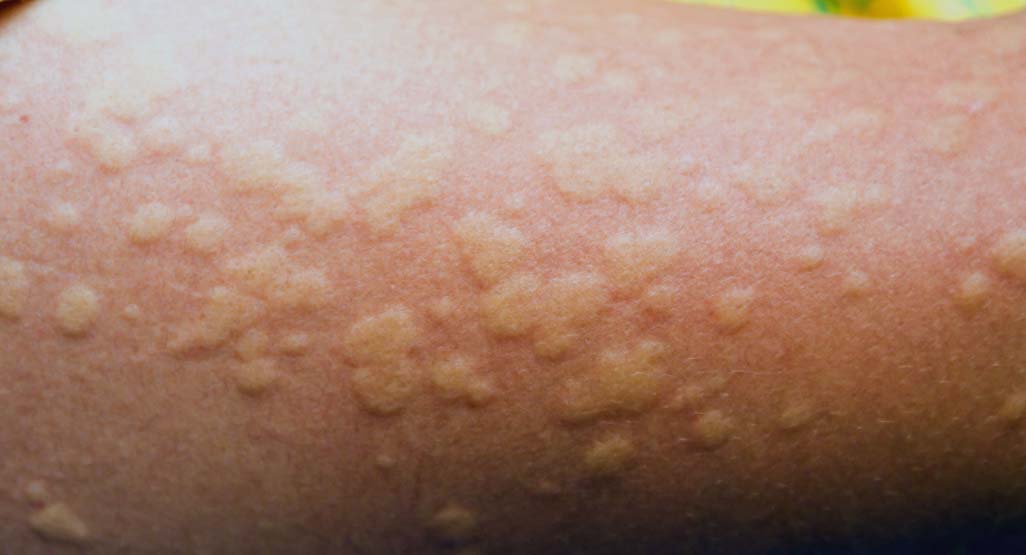
Urticaria (Hives)
Urticaria, commonly known as hives, is a skin condition characterized by raised, itchy, and red welts that appear on the surface of the skin. It is often caused by an allergic reaction to certain foods, medications, insect bites, or exposure to extreme temperatures. Hives can be acute (lasting less than six weeks) or chronic (lasting more than six weeks).Let’s jump to 5th Types of Skin Allergies
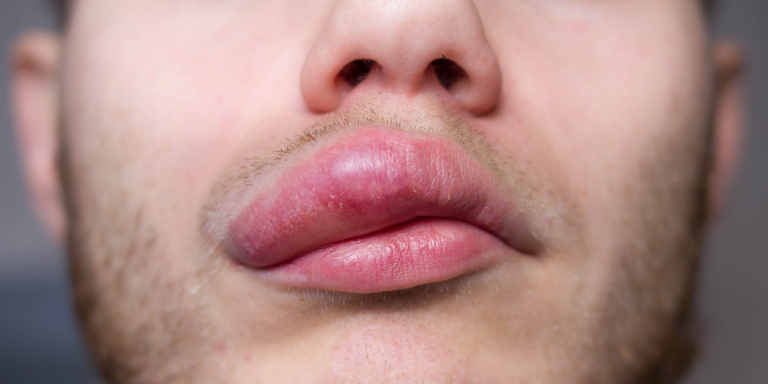
Angioedema
Angioedema is a condition similar to hives but involves swelling beneath the skin rather than on the surface. It commonly affects the lips, eyes, hands, feet, and genitals. Angioedema can be triggered by an allergic reaction or certain medications. In some cases, it may be accompanied by hives or occur without any visible skin symptoms. Let’s jump to 6th Types of Skin Allergies

Allergic Rhinitis
Allergic rhinitis, commonly known as hay fever, is an allergic reaction that primarily affects the nose and eyes. It occurs when the immune system overreacts to airborne allergens such as pollen, dust mites, or pet dander. Symptoms of allergic rhinitis include sneezing, runny nose, nasal congestion, itchy or watery eyes, and postnasal drip.
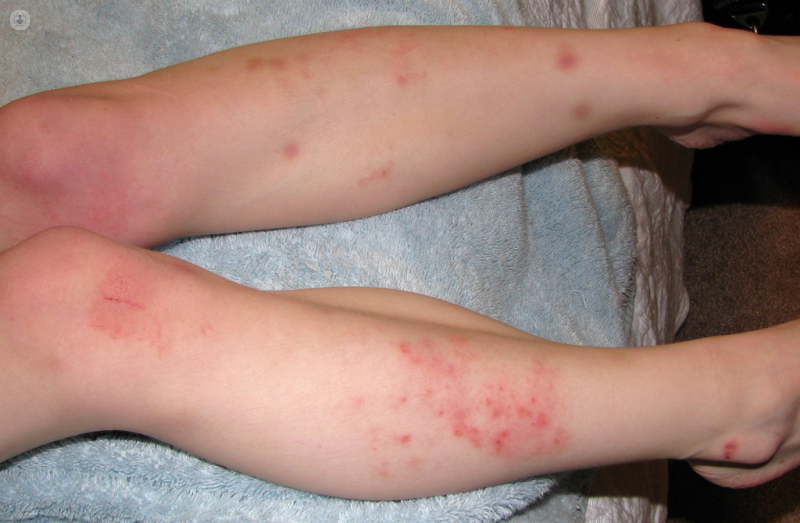
Food Allergies and Eczema
Food allergies can contribute to the development or exacerbation of eczema symptoms in some individuals, particularly in children. Common food allergens include peanuts, tree nuts, milk, eggs, soy, wheat, fish, and shellfish. If you suspect a food allergy is triggering your eczema, it is crucial to consult with a healthcare professional for proper diagnosis and guidance.
Diagnosis and Treatment Options
Diagnosing skin allergies typically involves a comprehensive evaluation of medical history, physical examination, and, in some cases, allergy testing. Treatment options vary depending on the type and severity of the allergy. They may include avoiding allergens, topical medications, oral antihistamines, immunotherapy, or lifestyle modifications. It is essential to work closely with a healthcare professional to develop an individualized treatment plan.
Prevention Tips for Skin Allergies
Prevention plays a crucial role in managing skin allergies. Here are some practical tips to minimize your risk:
- Identify and avoid known allergens.
- Use hypoallergenic products.
- Keep your skin moisturized.
- Practice good hand hygiene.
- Wear protective clothing when necessary.
- Maintain a clean living environment.
- Manage stress levels
Conclusion
Skin allergies can significantly impact one’s quality of life, but with proper understanding and management, it is possible to minimize their effects. By recognizing the different types of skin allergies, their causes, symptoms, and available treatments, individuals can take proactive steps to prevent allergic reactions and seek appropriate medical care when needed.
Here are 10 frequently asked questions (FAQs) about skin allergies:

Q: What are the common symptoms of a skin allergy?
A: Common symptoms of a skin allergy include itching, redness, rash, swelling, and in some cases, blisters or hives.
Q: What are the common causes of skin allergies?
A: Skin allergies can be caused by various factors such as contact with irritants or allergens like certain chemicals, metals, cosmetics, and plants, or exposure to certain foods or medications.
Q: Can skin allergies be inherited?
A: Yes, some skin allergies have a genetic component, meaning they can be inherited from parents or family members who also have a history of allergies.
Q: How can I determine the specific cause of my skin allergy?
A: Determining the specific cause of a skin allergy often requires a thorough evaluation by a healthcare professional, which may involve a medical history review, physical examination, and possibly allergy testing.
Q: Can stress worsen skin allergy symptoms?
A: Yes, stress can potentially exacerbate skin allergy symptoms in some individuals. It is believed that stress can weaken the immune system, making the body more susceptible to allergic reactions.
Q: Are there any natural remedies for managing skin allergies?
A: While natural remedies may provide some relief for mild skin allergies, it is important to consult with a healthcare professional for proper diagnosis and guidance. Natural remedies such as aloe vera, oatmeal baths, or cold compresses may help soothe symptoms temporarily.
Q: Can skin allergies develop at any age?
A: Yes, skin allergies can develop at any age. Some individuals may develop allergies in childhood, while others may develop them later in life.
Q: Are there any lifestyle changes that can help prevent skin allergies?
A: Yes, making certain lifestyle changes can help prevent skin allergies. These include avoiding known allergens, using hypoallergenic products, keeping the skin moisturized, practicing good hygiene, and managing stress levels.
Q: Are there any long-term complications associated with skin allergies?
A: In some cases, chronic or severe skin allergies can lead to complications such as skin infections, scarring, or psychological distress due to the impact on one’s appearance and quality of life.
Q: Can skin allergies be cured?
A: While there is no known cure for skin allergies, their symptoms can be effectively managed through proper identification and avoidance of triggers, as well as appropriate medical treatment.
Remember, if you have specific concerns or questions about your skin allergies, it is best to consult with a qualified healthcare professional for personalized advice and guidance.
